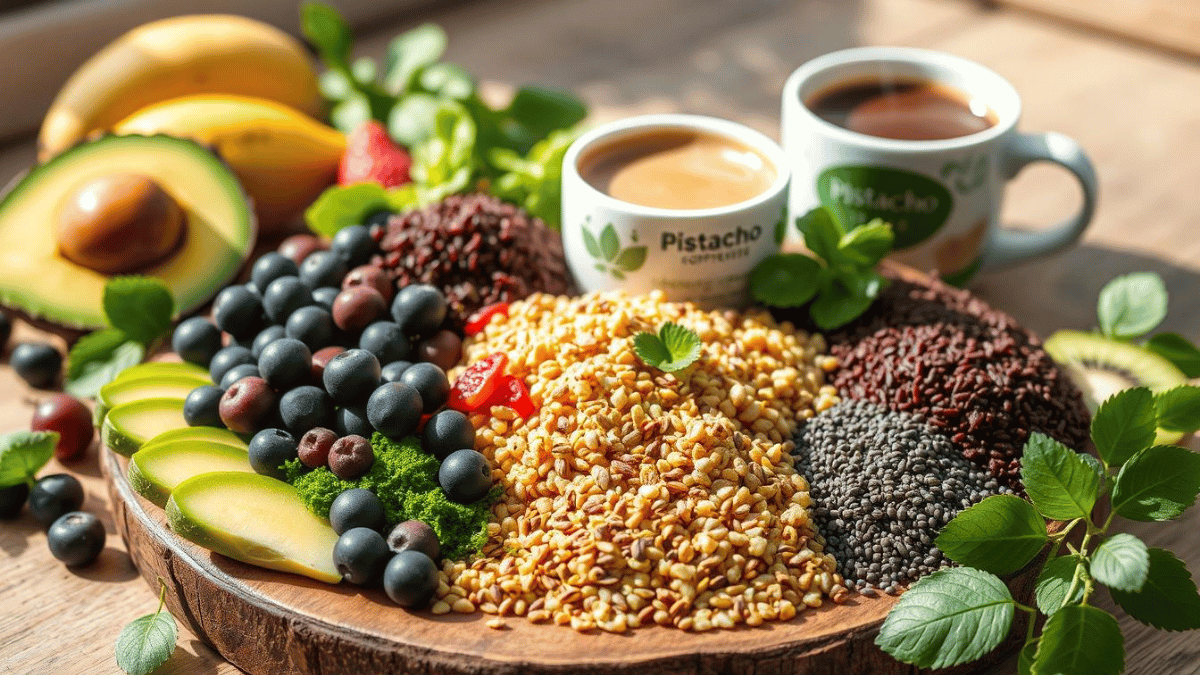There’s a quiet rhythm to the day when hunger shows up—sometimes mid-morning, sometimes in the late afternoon, or even as evening winds down. It’s easy to reach for whatever’s close: a bag of chips, a cookie, or a leftover slice of pizza. But those quick fixes often leave energy crashing, mood shifting, and the body feeling heavier.
Choosing snacks that support steady blood sugar isn’t about strict rules or complicated plans. It’s about small, thoughtful choices that help the body feel calm, focused, and nourished. Cardiologists often remind us that what we eat between meals can be just as important as what’s on our dinner plate. When snacks include fiber, protein, and healthy fats, they do more than fill a gap—they help keep energy and heart health in balance.
Why Snacks Matter for Heart and Energy
Snacking isn’t just about hunger. It’s a chance to care for the body in a gentle way. Fiber slows digestion, protein keeps fullness comfortable, and healthy fats help glucose absorb slowly. Together, these nutrients prevent sugar from rushing into the bloodstream all at once. This quiet rhythm helps the heart and metabolism stay steady, supporting calm energy and better focus.
The gut also plays a quiet role. When it’s fed with plant fibers and fermented foods, it produces tiny molecules that reduce inflammation and help the body feel steady. There’s a deep connection between digestion, mood, and heart health. A balanced gut can even help with emotional calm, making mindful snacking a small act of self-care.
The Right Time to Snack
Timing matters as much as what’s on the plate. Eating a nourishing snack mid-morning or mid-afternoon helps keep energy flowing between meals. Many people feel the afternoon slump most—when focus fades and coffee seems like the only answer. Swapping that late cup for a small bowl of Greek yogurt with berries can offer a smoother lift and avoid the crash that often comes later.
Evening snacks need extra care. As daylight fades, the body’s ability to process sugar naturally slows. Late-night sweets or sugary drinks can cause higher overnight glucose levels. If a snack is needed before bed, something light and protein-rich—like a spoonful of nut butter or a half cup of cottage cheese—can help the body wind down instead of rev up.
How Snacks Support Mood and Sleep
When blood sugar stays balanced, so does mood. The brain runs mainly on glucose, and it works best when levels are steady. Consistent energy helps with focus, reduces irritability, and supports better sleep by keeping hormones in sync. A balanced gut can also encourage the release of serotonin, the body’s natural “feel good” hormone. Lower glucose swings at night help melatonin guide the body into deeper rest.
Many people find that a routine of light, steady fuel in the early evening sets the stage for peaceful digestion and calm sleep. These small moments of care—like a handful of nuts, a bowl of berries, or a breath of mindfulness before eating—become the foundation for better energy and heart wellness.
Ten Simple Snacks That Support Steady Energy
Here are ten gentle, cardiologist-approved snack ideas that help keep glucose and heart health in balance:
- A small handful of raw nuts like almonds, walnuts, or pecans for healthy fats and fiber.
- Apple slices with a spoonful of natural peanut or almond butter for a crisp, creamy balance.
- Whole-grain crackers topped with avocado for sustained fullness.
- Air-popped popcorn lightly misted with olive oil for crunch without added sugar.
- Hard-boiled eggs for portable protein with minimal carbs.
- Unsweetened Greek yogurt with a handful of fresh berries for probiotics and antioxidants.
- Cottage cheese for calcium and slow-digesting protein.
- String cheese or a small slice of reduced-fat cheese for protein on the go.
- Celery or bell pepper strips with hummus for fiber, healthy fats, and volume.
- Steamed or roasted edamame for a complete plant protein that satisfies salty cravings.
It’s not about counting every calorie, but about noticing portion patterns. Half a cup of beans or yogurt, a small handful of nuts, or one egg keeps energy smooth without overloading digestion.
Listening to Your Body
Some people may feel bloated after high-fiber snacks or notice mild discomfort if they eat too many nuts at once. If managing diabetes or heart conditions, it’s wise to check with a doctor before changing portion sizes. For most, gradual introduction and mindful chewing work wonders. Start with one thoughtful snack a day, notice how the body responds, and adjust slowly. The body leaves gentle clues.
Building a Habit That Lasts
Sometimes, it’s the small moments that teach us the most. Skipping meals, relying on caffeine, or reaching for quick sugar fixes often backfires. Learning steadiness—eating at regular intervals, choosing snacks that respect metabolism—creates a quiet discipline that pays back in vitality. These small acts of care become a steady companion to daily life. When done with intention, even the simplest snack becomes a small act of nourishment, one that steadies both body and pace for the long road ahead.
